Health Tips
Is Your Child Slow to Get Things Done? Suspecting Attention Deficit?
7 January 2024
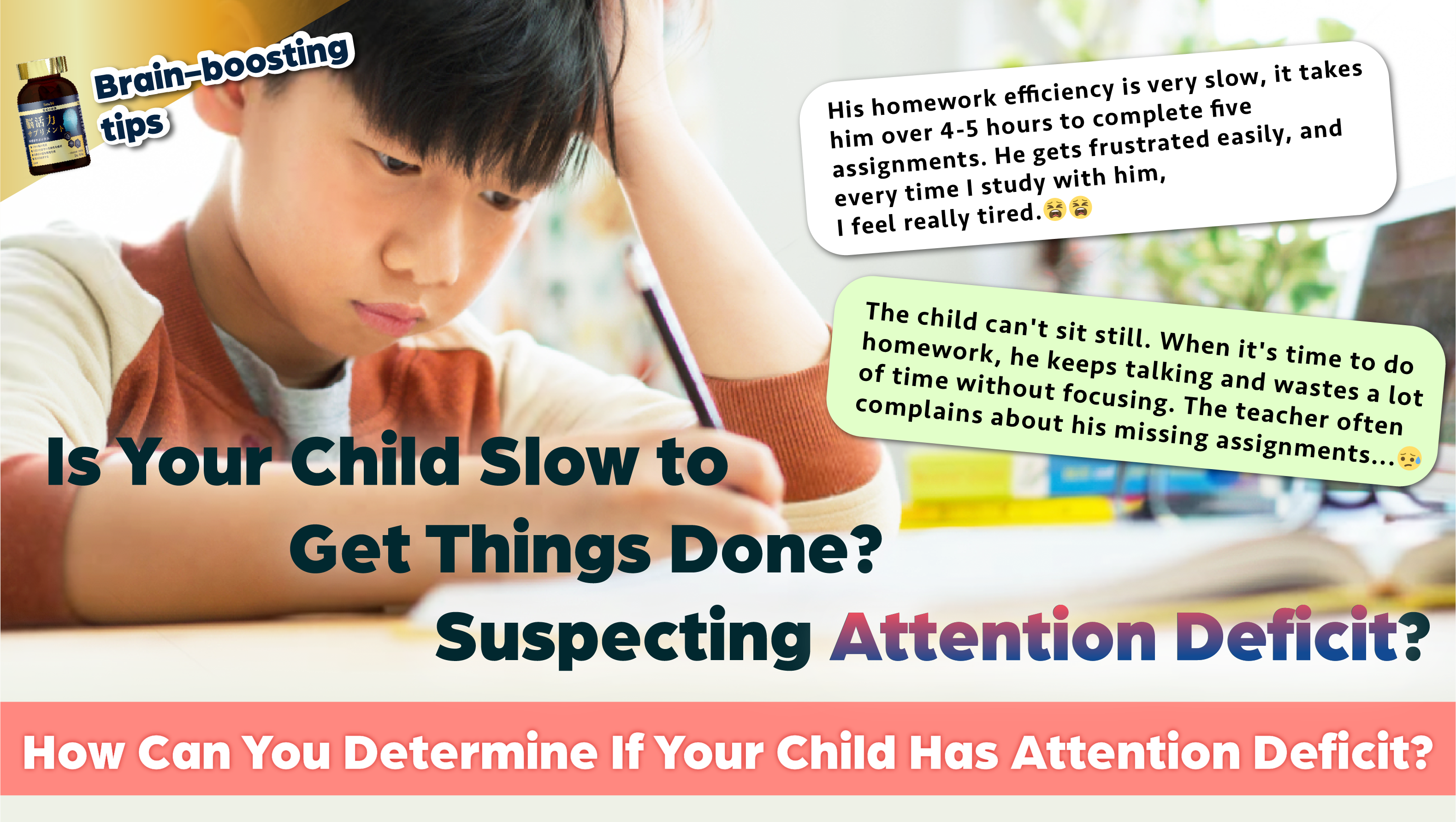
Does your child often seem restless, unable to sit still, or take a long time to finish tasks? Many parents run out of patience when helping their children study or complete homework, sometimes mistaking this behavior for mischief and scolding them. However, it may actually be a result of Attention Deficit (AD). What are the symptoms of attention deficit, and how can this issue be addressed? Let us explain!
How Can You Determine If Your Child Has Attention Deficit? What Are the Symptoms?
Symptoms of attention deficit typically emerge before the age of 7. Children and adolescents with this condition often have difficulty focusing on table activities, such as homework, studying, or attending classes. Other symptoms may include an inability to sit still, difficulty remembering what others say, frequently losing items, excessive hyperactivity, challenges in expressing themselves, and a tendency to engage in conflicts with peers. Unfortunately, these behaviors are often misinterpreted by caregivers as laziness or mischief.
Attention deficit issues are not exclusive to children and adolescents; adults can also experience similar challenges. The symptoms of attention deficit can differ in adults compared to younger individuals, particularly after experiencing personal growth and environmental changes. For adults, symptoms may include carelessness, easily becoming distracted, forgetfulness, lack of organizational skills, disorganization in tasks, emotional instability, and impatience.

According to data from the Attention Deficit/Hyperactivity Disorder (Hong Kong) Association, the global prevalence of ADHD among children ranges from approximately 3% to 7%. Dr. Song Wing-Kuen, a psychiatrist, also noted that around 5% of children in Hong Kong are diagnosed with ADHD, with symptoms persisting in 50% to 60% of these individuals into adulthood. This means that roughly 3% of the population in Hong Kong is affected by this disorder.
Additionally, some patients are mistakenly perceived as simply impatient, lazy, or disorganized, which leads to delays in seeking medical treatment. Consequently, the true number of individuals experiencing attention deficit symptoms may be significantly higher than current estimates indicate.
Fortunately, parents need not be concerned! There are effective strategies available to help improve attention issues in children and adolescents, and these methods can also benefit adults, particularly those who did not receive treatment for attention difficulties during their younger years, resulting in meaningful improvements.
3 Strategies to Improve Attention Deficit
1) Goal Setting
To enhance your child's focus, the first step is to help them set clear and achievable goals. This will enable them to better understand their tasks. If they have multiple responsibilities, assist them in prioritizing the order in which to tackle these tasks so they can concentrate on one thing at a time.
2) Establish a Routine
Maintaining a regular schedule is essential for improving attention span. Research from Japan shows that if children go to bed later than 11PM at the age of 2 or have irregular sleep patterns, they are 1.62 times more likely to develop attention problems by age 8. This emphasizes the significant impact that rest has on focus and attention.

3) Consume “Tenchi Smart Brain” for Adequate Nutrition!
“Tenchi Smart Brain” is a new nutritional supplement designed to boost memory and concentration. Made from natural ingredients, it contains DHA, lutein, zinc, B vitamins, iron, and walnut extract, which can effectively enhance attention span, memory, emotional management, and organizational skills for individuals of all ages.
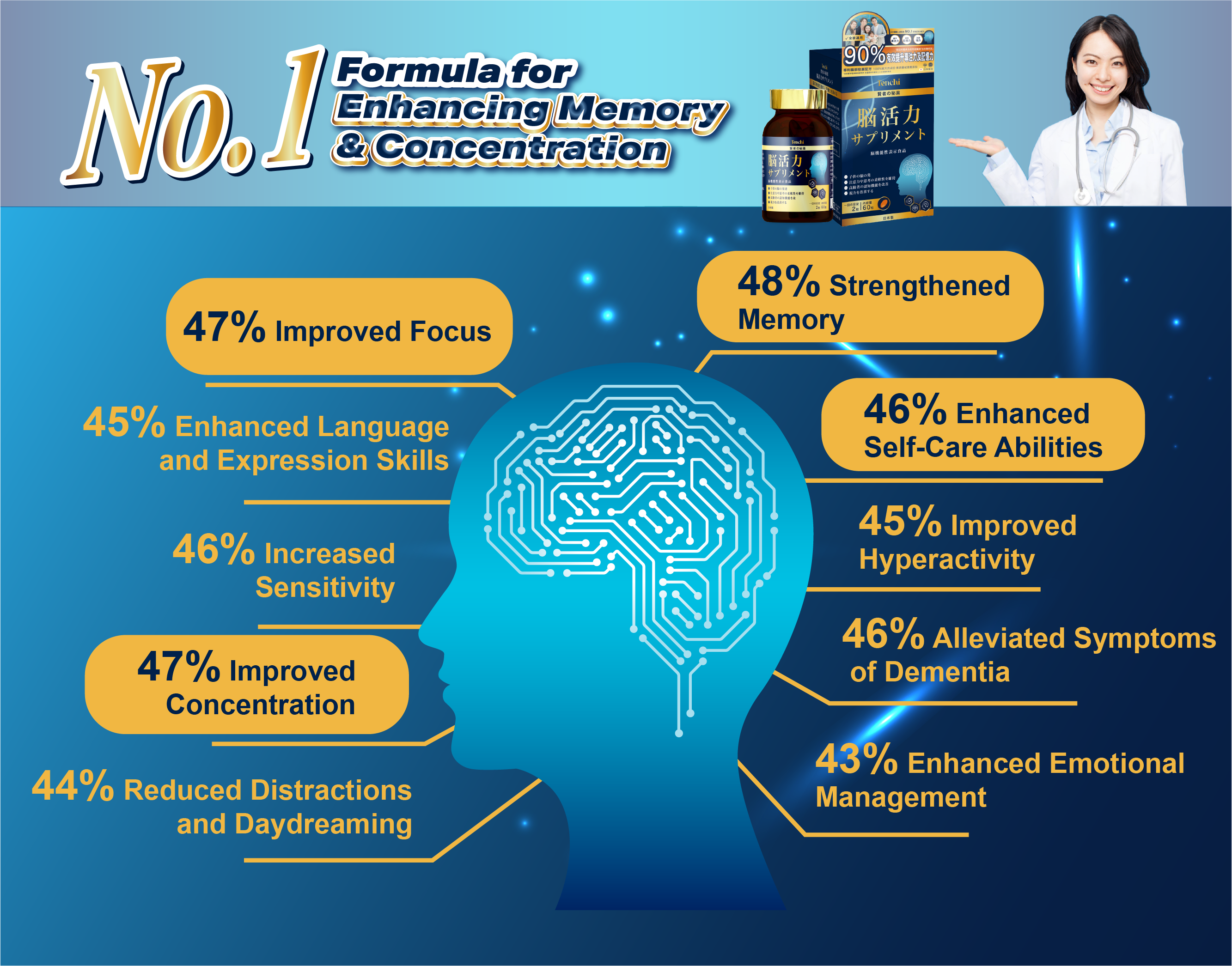
“Tenchi Smart Brain” are endorsed by Japanese healthcare professionals and have undergone clinical testing, showing a 47% improvement in concentration, a 43% boost in emotional management, and a 98% improvement in academic performance among children and adolescents.
Made from natural ingredients and free of both traditional and Western medicines, as well as sugar, Japanese Smart Beans are suitable for children aged 6 and above. For children who struggle with focus or hyperactivity, the recommended dosage is 2 capsules, twice daily. For general wellness, a daily dose of 2 capsules is sufficient.
Tenchi Mall
Tenchi Smart Brain

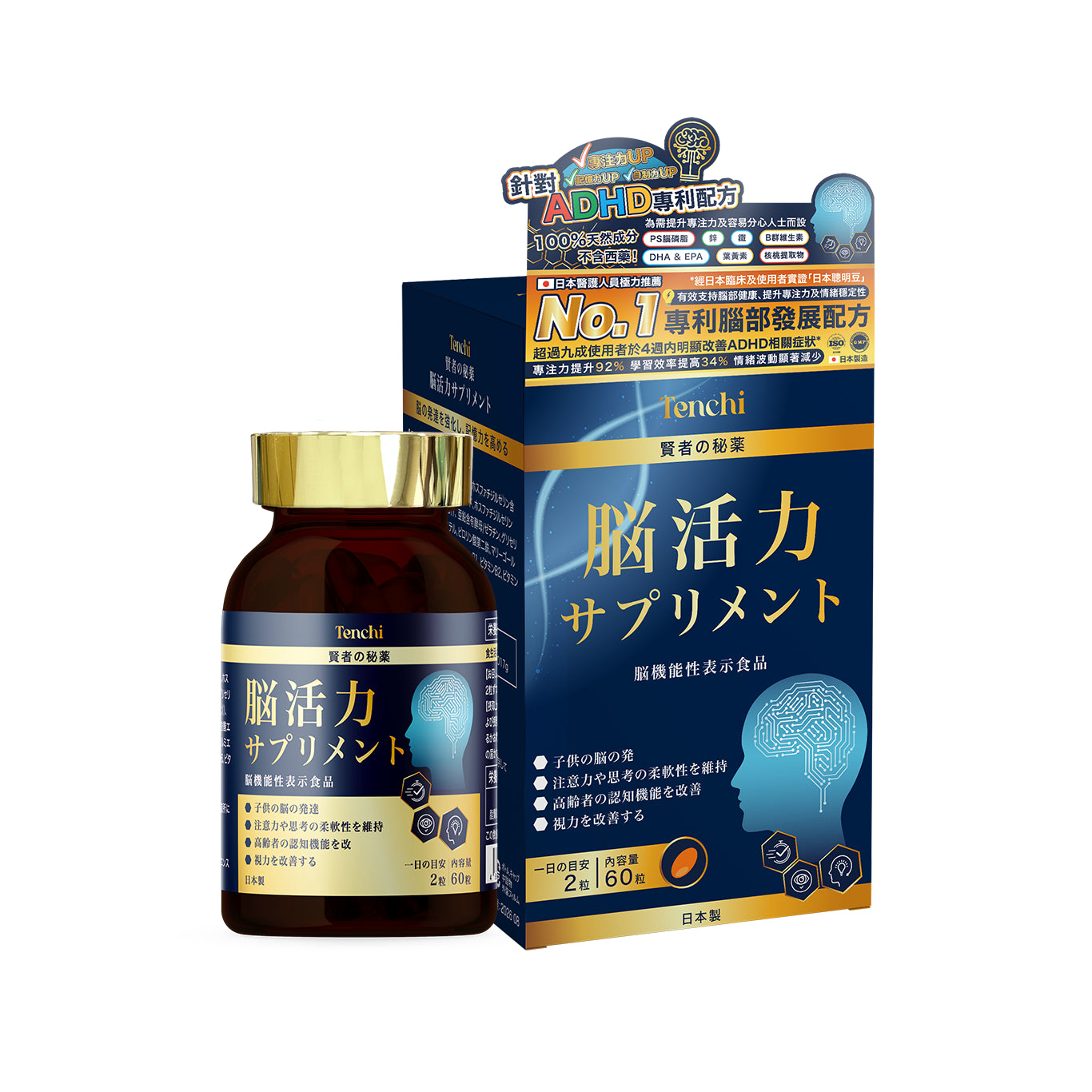
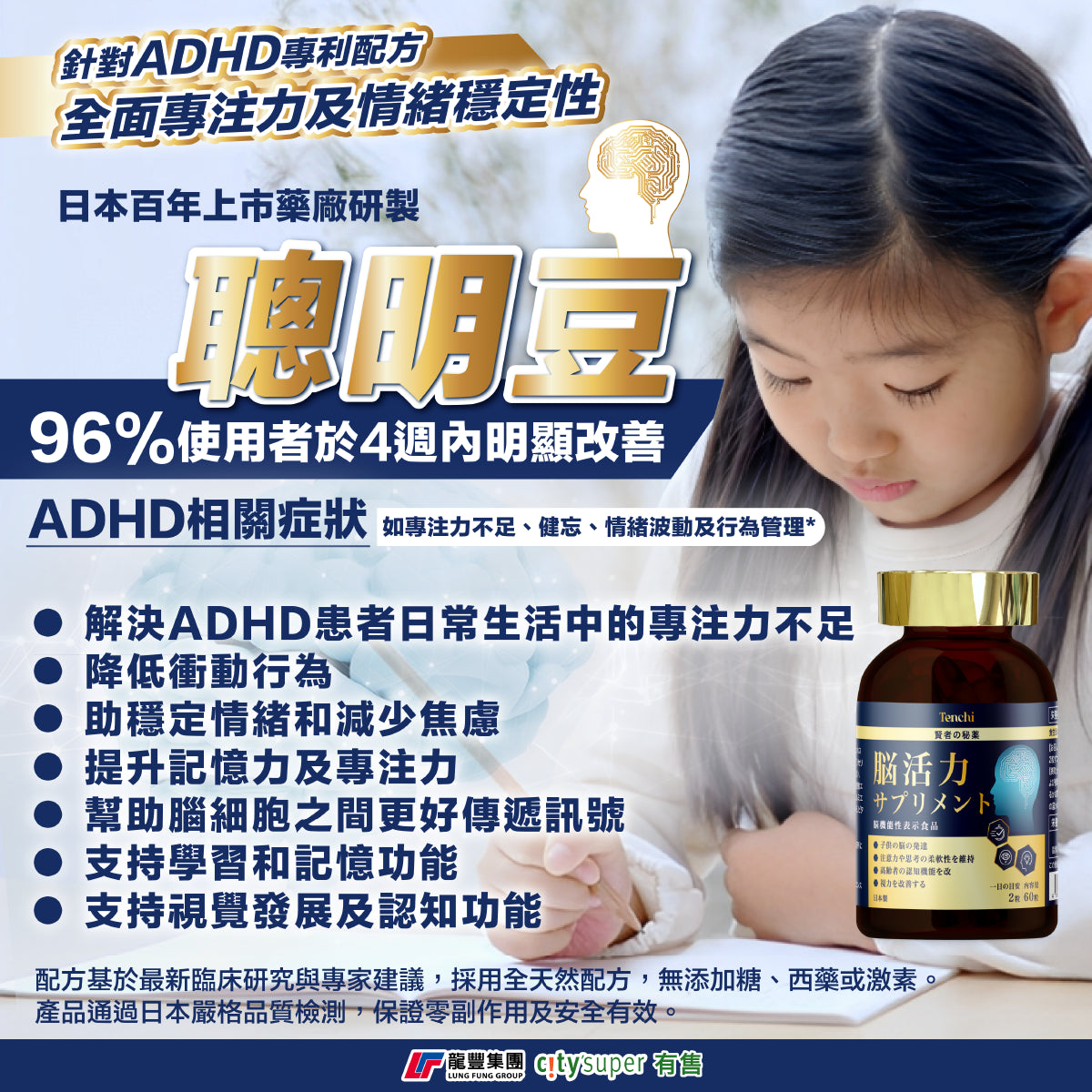
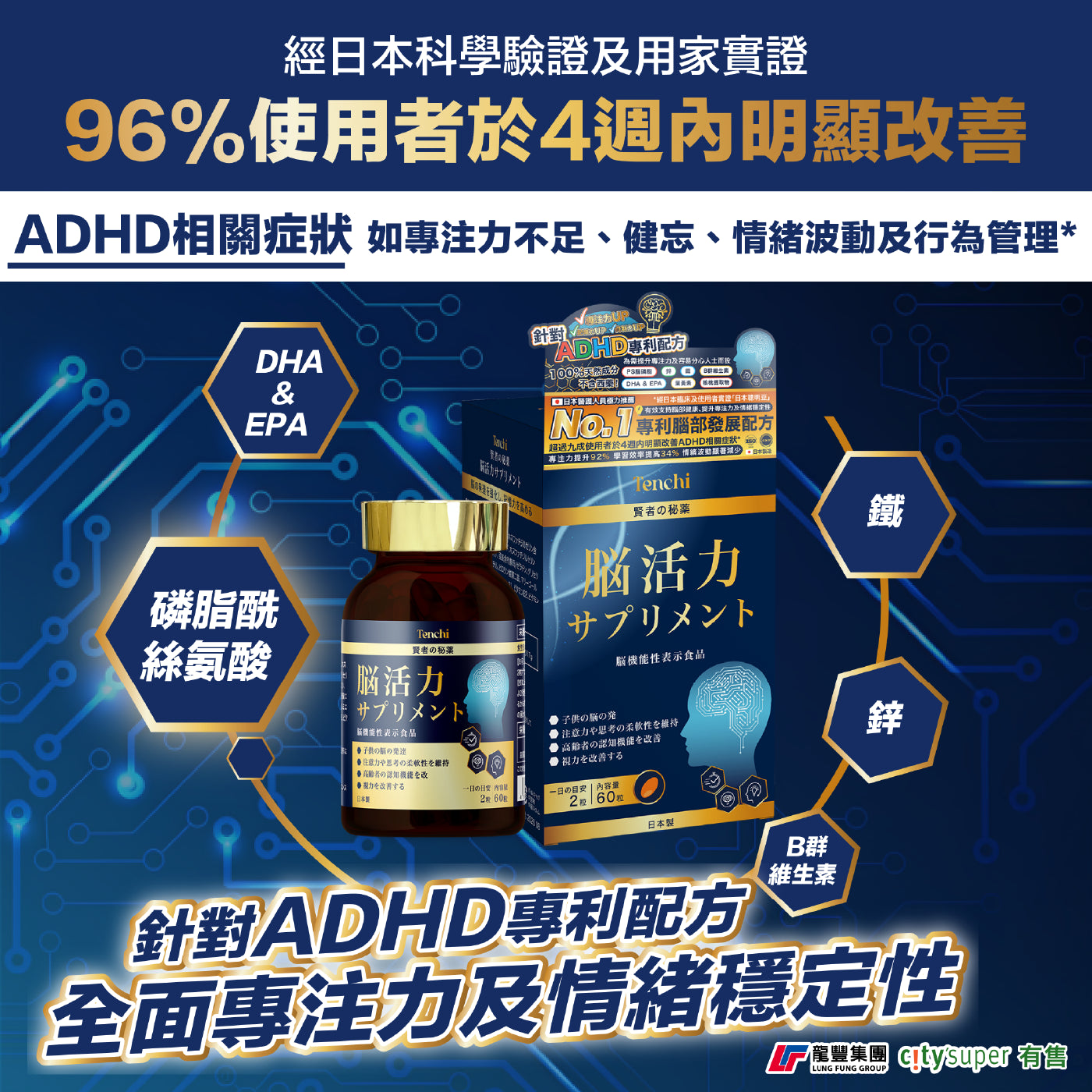
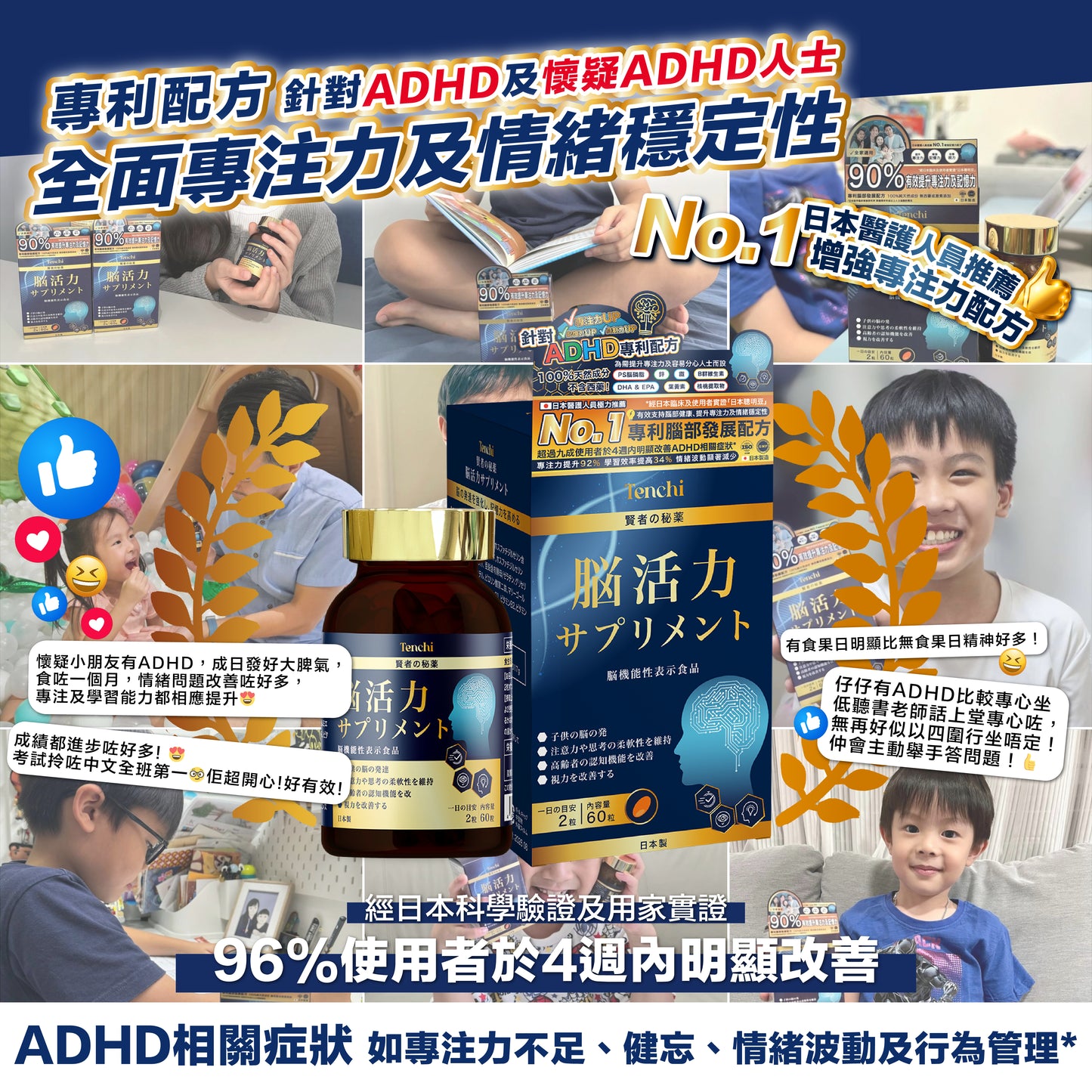
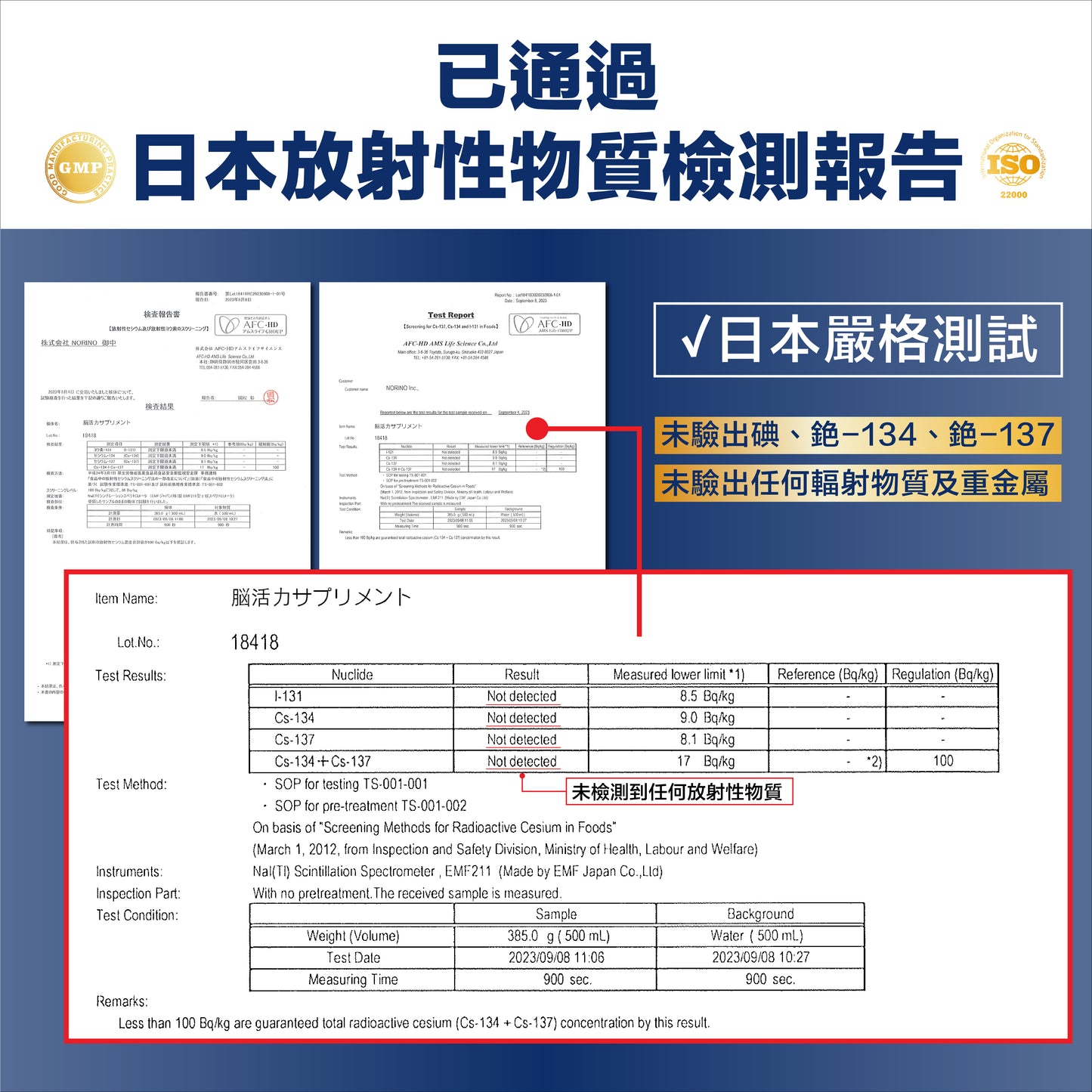


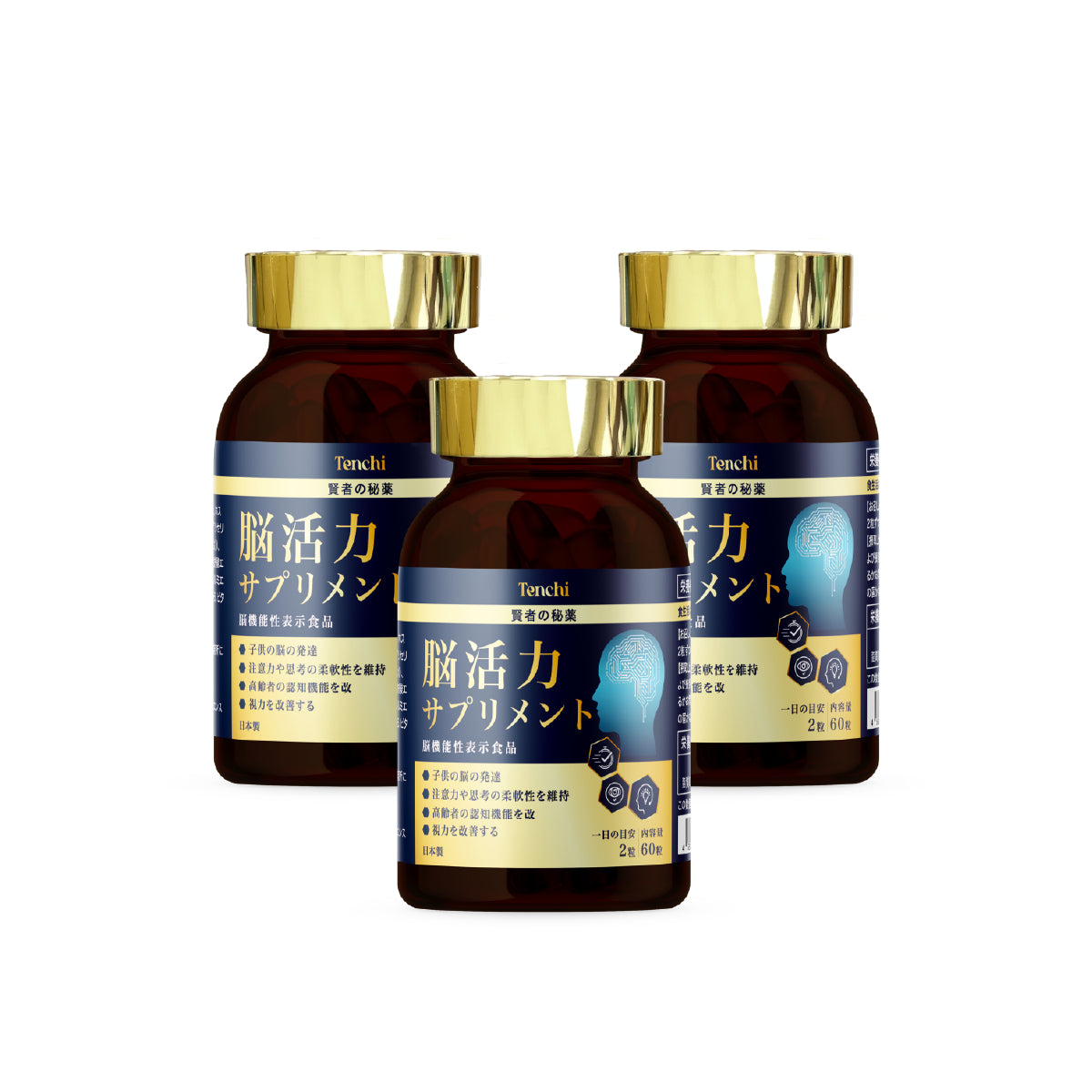
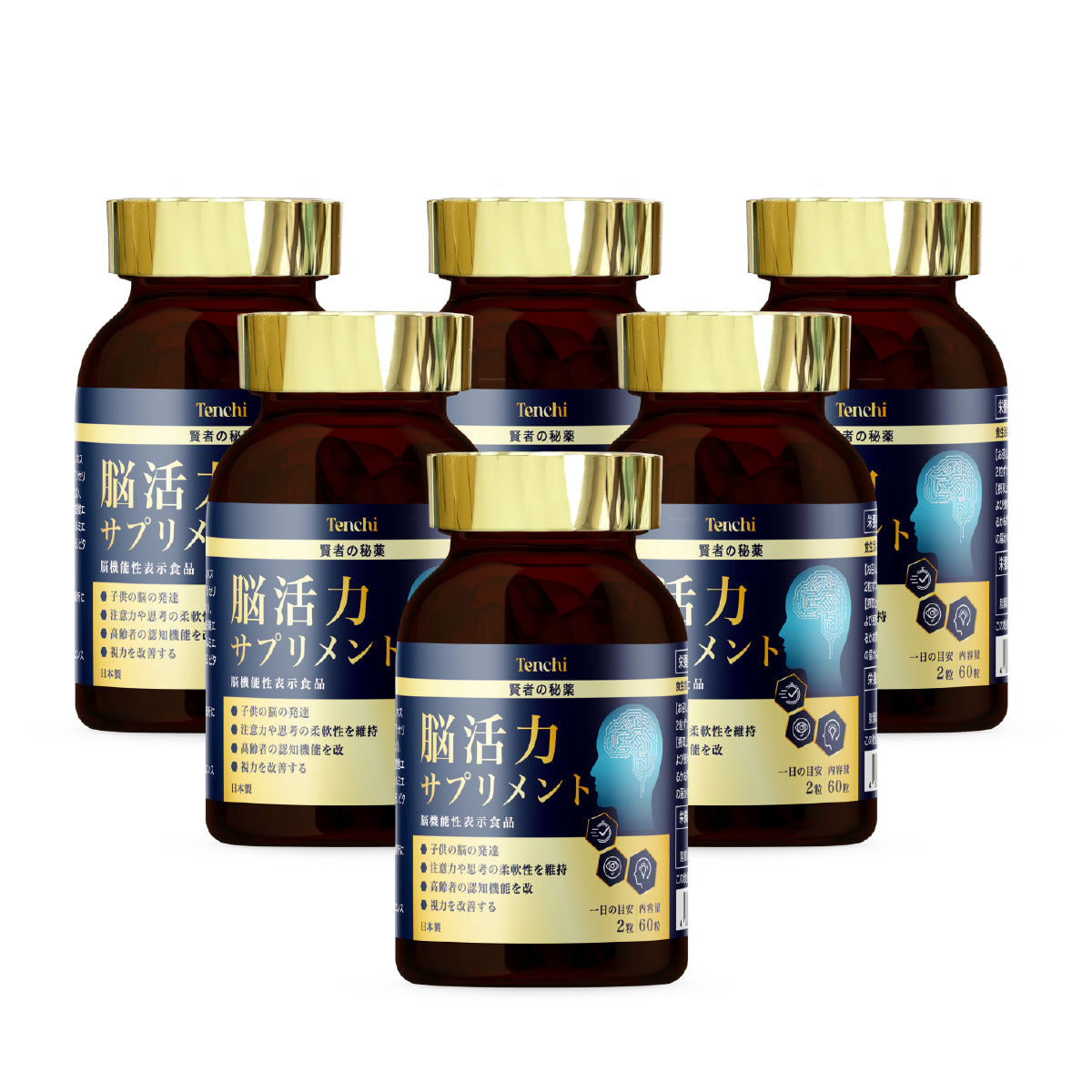
-

Parents, Take Note! 3 Major Factors Affecting Height Development!
Learn MoreMany people believe that height is closely linked to genetics. In fact, besides genetics, external factors play an even more significant role! As parents, how can you tell if your child's height is up to standard? Before the "golden growth period" ends, what methods can help your child grow taller? Let's discuss the three most important factors influencing height and teach you how to make the most of the "golden growth period" to easily surpass genetic height limits!
-
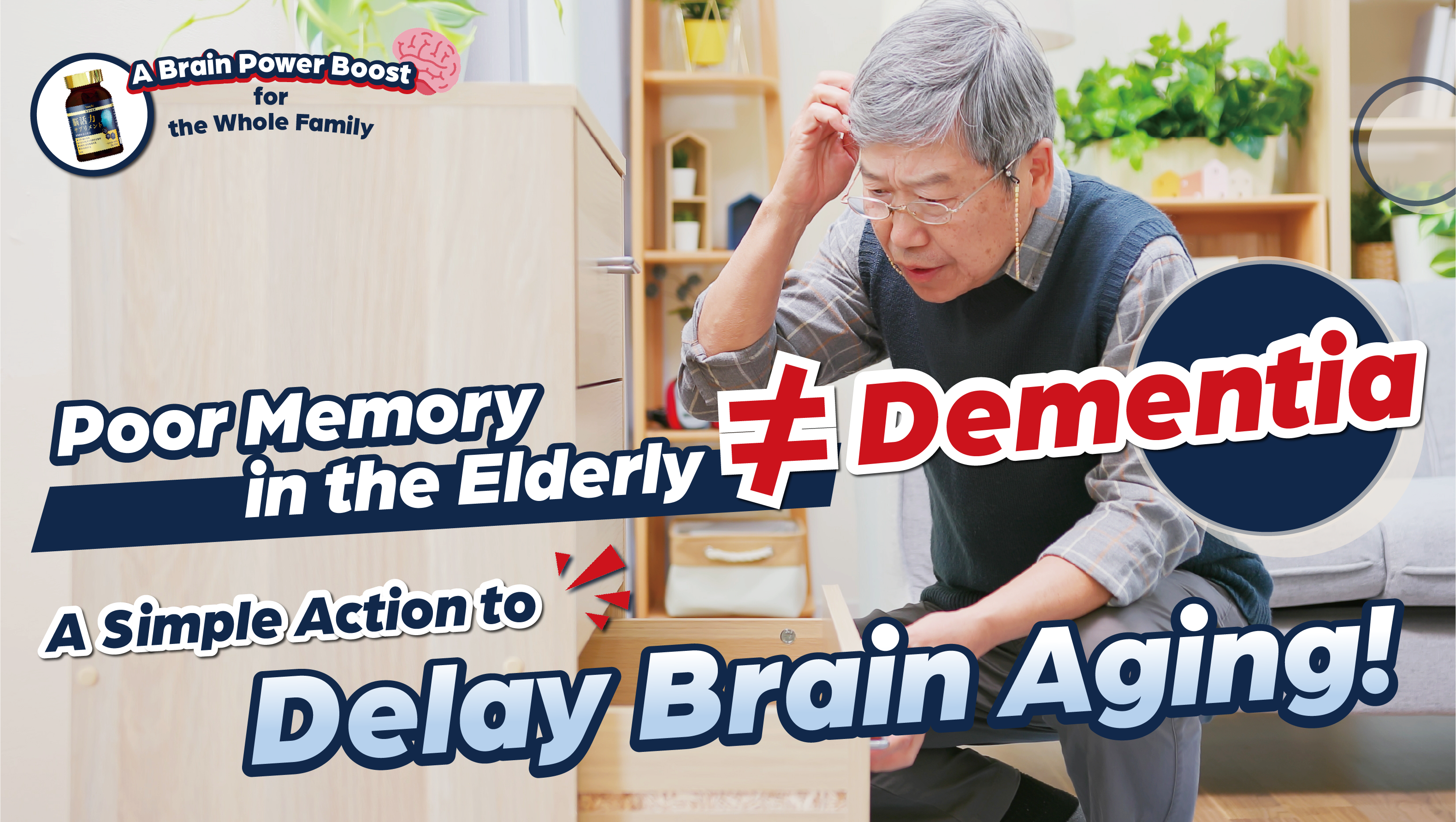
Poor Memory in the Elderly ≠ Dementia: A Simple Action to Delay Brain Aging!
Learn MoreAs we age, it’s common for memory to decline—forgetting names or where things are placed can cause concern about early signs of dementia. However, according to Japanese dementia specialist Dr. Yukimichi Imai, age-related memory loss and dementia are not the same, and there's no need to worry excessively about occasional forgetfulness. So, how can you differentiate between normal memory loss and dementia, and what can you do to prevent it? Let's explore!
-

Learn This Trick! Easily Adjust Your Body to Become Slimmer!
Learn More"Losing weight is so hard." This is a sentiment many people share. For some, it even becomes a lifelong mission! Many resort to extreme methods like dieting in an attempt to shed pounds. At first, it may seem effective—people can lose 2 to 3 kilograms, or even more, in a short time. However, after some time, they hit a plateau. Once they resume regular eating, their weight rebounds, sometimes with serious health consequences.
-

Say No to Steroids! Eliminate Eczema and Restore Your Baby-Smooth Skin!
Learn MorePeople with eczema often need to use topical steroids to control their condition. However, even with prolonged itching, it's important not to overuse these medications. Scratching the affected areas can lead to skin damage and expand the eczema's reach. Fortunately, many skincare brands are dedicated to researching solutions for the itching associated with eczema. A patented ingredient developed in collaboration with Kyoto University and Osaka University in Japan can quickly relieve eczema symptoms, alleviate itching, and help restore the skin barrier to address the problem at its source.

























